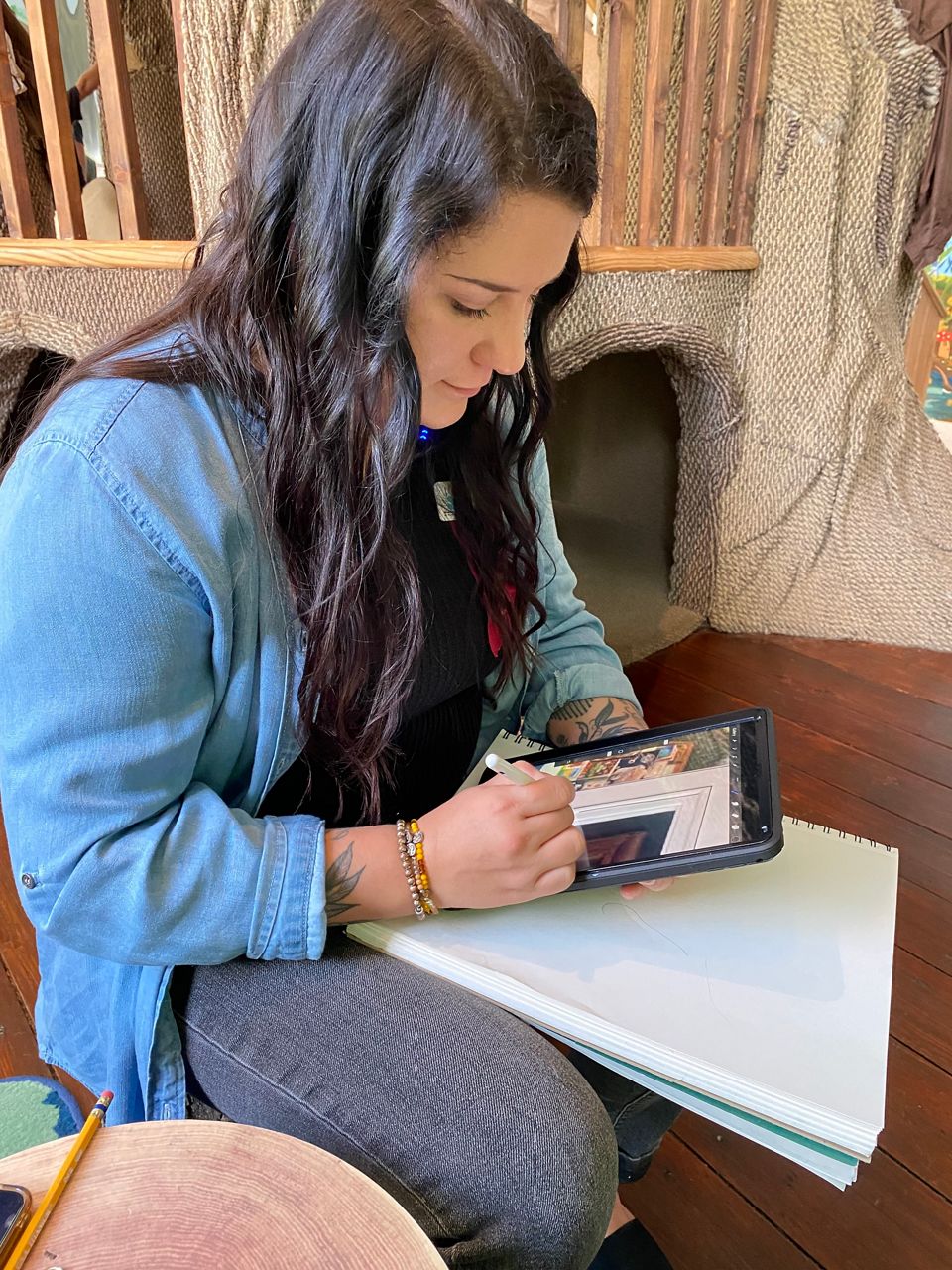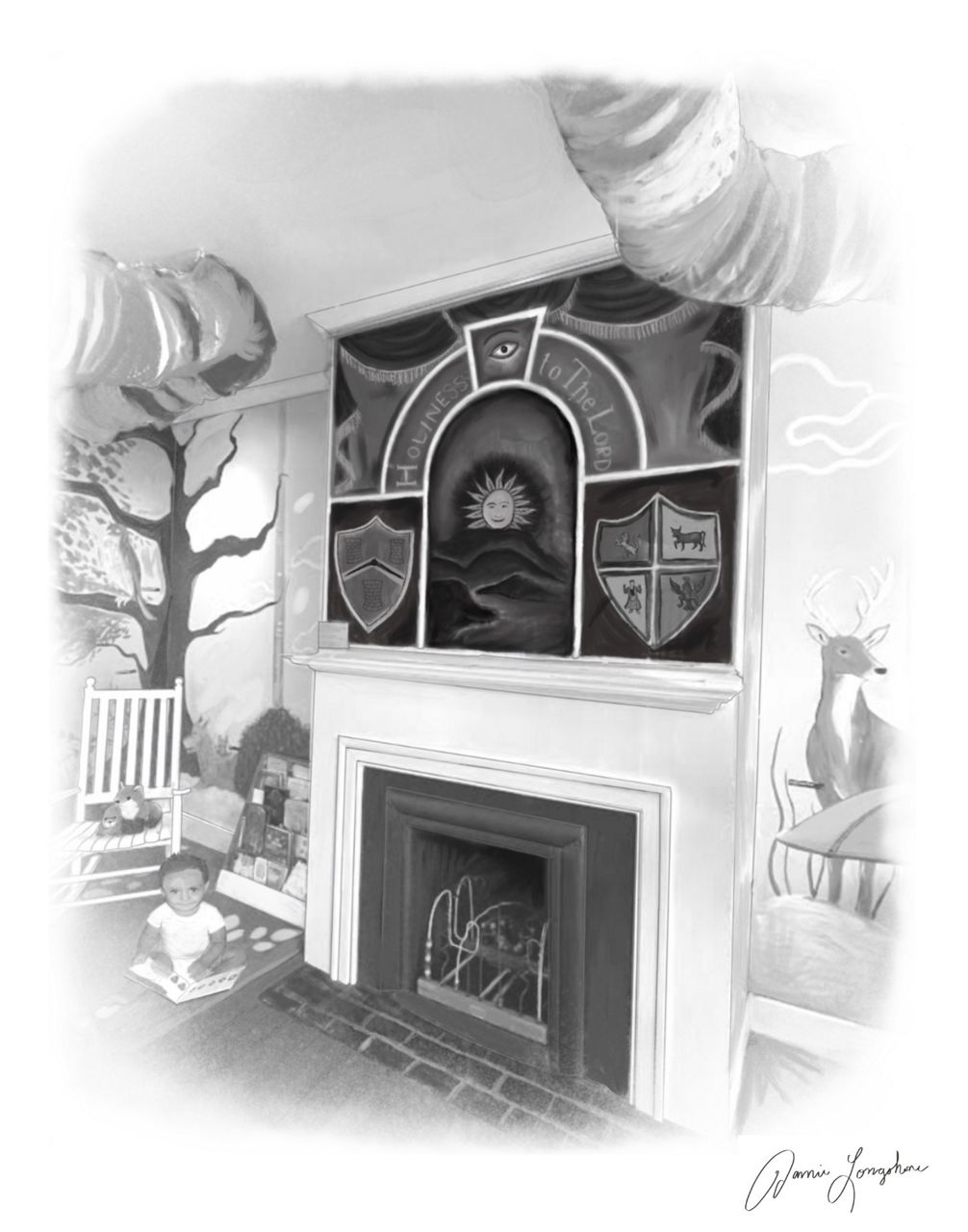WILMINGTON, N.C. — Unless you have a toddler, you may never lay eyes on the oldest wall mural in the state of North Carolina simply because of its exclusive location inside what is currently The Children's Museum of Wilmington.
The mural is thought to be painted by a French artist in the early 1800s
It was covered by wallpaper until the 1940s, when it was rediscovered during a renovation
In honor of its 25th anniversary The Children's Museum of Wilmington is celebrating the history in the walls of its buildings, including the mural

In honor of its 25th anniversary The Children's Museum of Wilmington is sharing parts of its history and not just the history of the museum, but that of the buildings it now calls home – one of which started as St. John's Masonic Lodge in 1801 and became home to what is believed to be the oldest wall mural in the state.
“It does capture your attention and once you start to look into it and say 'wow, how old is it or what does this mean, or I didn't realize we had this sort of history' or it sparks that little bit of 'I wonder,'” said Jessie Goodwin, the director of operations for the museum.
The symbols in the painting itself tie back to the Freemasons. The original artist of the painting is somewhat of a mystery, but the best understanding is that a relatively unknown French artist named JJ Bellanjer painted the work around 1808 right after the Masonic Lodge opened its doors.
“Today it's definitely a conversation piece,” Goodwin said. “I've always been captivated with it, and that's kind of what got me excited about going into the history of the buildings themselves.”
Jamie Longshore first set foot in the Children's Museum while getting her degree in art and studying under another local artist. She was immediately drawn to the infectious energy in the museum and soon sought a job there herself.
“I just was thinking this would be a great opportunity to work with kids and get hands-on experience, and it was so much more than that,” Longshore said.
She and Goodwin, the self-proclaimed historian at the museum, have devoted their time to uncovering the history of the buildings brick by brick.

“People that aren't even coming to play, they'll come in off the street and ask, 'We know this is the first lodge in North Carolina,' and they want to know all the facts,” Longshore said.
Since its construction in the 19th century, the building has served as many things, including a school, a private dwelling, a tavern, even an art museum ironically enough.
“At one point it was a tavern between being a residence and a school, and it was wallpapered over,” Goodwin said. “When they were renovating for that tavern they peeled it off and found ... 'what is this?' When that wallpaper was taken off not a whole lot was actually remaining.”
Due to years of less than ideal conditions the mural has undergone several restorations and cleanings by many different conservators and artists. Centuries of dust and decay along with mold and water damage have taken their toll on the masonic-age mural, but the museum is in the process of seeing it properly restored and preserved once again.
“It's actually darkened a little over time. I'm assuming that's because of the type of medium that was used,” Longshore said. “The closer you get to it you can see that there's a lot of depth to it, and you can see something new every time you look at it. It's a nice contrast against all the bright colors in here.”
The museum is in the process of putting together a series of events that celebrate the diverse history of the buildings it occupies that would allow the general public to appreciate the spaces along with the regular young crowd.
“Everyone had such a great interest in the well-being of the building, of the mural,” Goodwin said. “It's just a really neat item when you look into it how the spider web of folks interested in it are actually connected through this one piece.”






